Top 5 Reasons Why Home Builders Should Invest in Home Management Software

In today's construction landscape, home builders face more pressure than ever before — tighter margins, rising material costs, and clients who expect constant updates and transparency. Managing multiple projects, subcontractors, and post-construction client needs can feel like a juggling act.
Relying on spreadsheets, paper files, and scattered communication tools simply doesn't cut it anymore. That's why many U.S. builders are now adopting home management software to bring structure, visibility, and efficiency not only during construction but also throughout the homeownership lifecycle.
Here are the top five reasons why home builders should invest in modern home management software — and how it helps address common pain points across the building and ownership process.
1. Centralized Document Management for a Paperless Workflow
Home construction produces countless documents — blueprints, permits, inspection reports, contracts, budgets, and warranties. When files are stored in multiple folders or shared over long email chains, vital information can easily get lost or become outdated.
Home builder software helps eliminate this problem with centralized document management. Every file — from the initial design plans to the final warranty packet — can be stored, organized, and accessed in one secure digital location.
This not only reduces paperwork but also minimizes costly errors caused by working from outdated versions. Everyone — from field supervisors to office teams — stays aligned with the most current information.
Pain point solved: Builders waste hours chasing paperwork or misplaced files. Centralized document storage ensures easy access, version control, and greater project transparency.
2. Real-Time Oversight of Warranty Savings and Customer Referrals
Maintaining strong customer relationships and managing warranty issues efficiently are key challenges in homebuilding. Missed follow-ups, unresolved service requests, or lack of visibility into warranty data can hurt both profitability and client satisfaction.
Home management software provides builders with real-time visibility into warranty performance and customer interactions. By streamlining service requests, tracking issue resolution, and capturing feedback, builders can reduce warranty costs and enhance the homeowner experience.
Having this data available instantly — rather than relying on manual updates — allows teams to respond proactively, resolve issues faster, and turn satisfied homeowners into brand advocates. Automated reminders and communication tools also help drive repeat business and referrals.
Pain point solved: Manual warranty tracking and fragmented communication limit customer satisfaction. Real-time homeowner management tools help builders reduce costs and increase customer referrals through a smoother post-construction experience.
3. Improved Scheduling, Maintenance, and Coordination
Home building requires coordinating numerous trades and tasks, and delays in one area often affect the entire schedule. Likewise, after homeowners move in, managing maintenance schedules and service reminders becomes just as critical to protecting quality and reputation.
Home management software helps builders handle both sides of this process. During construction, digital scheduling tools allow teams to plan tasks, set dependencies, and receive automatic updates when schedules change. After handover, the same system can track recommended maintenance activities for installed systems like HVAC, roofing, or plumbing.
This level of organization helps reduce costly downtime during construction and ensures homeowners receive proactive care after the build is complete.
Pain point solved: Missed deadlines and forgotten maintenance tasks create frustration and added costs. Smart scheduling and reminders keep operations running smoothly from build to ownership.
4. Enhanced Communication and Collaboration
A successful building project depends on clear communication — not only among internal teams and subcontractors but also with homeowners. When updates are spread across emails, texts, and printed notes, details can easily fall through the cracks.
Home management software unifies communication channels. Builders, vendors, and clients can exchange updates, share photos or documents, and track tasks in a single, secure environment. Everyone works from the same information, reducing misunderstandings and rework.
Builders can also use homeowner portals to provide clients with direct access to key information — such as warranty documents, appliance manuals, and progress updates — which enhances transparency and client satisfaction.
Pain point solved: Miscommunication leads to costly errors and unhappy clients. A shared digital platform ensures accountability and clarity at every step.
5. Simplified Handover, Warranty, and Homeowner Support
For many builders, post-construction management — including warranties, service requests, and client support — can become chaotic once the homeowner moves in. Without a system to organize these interactions, small issues can snowball into costly reputation problems.
Home management software brings structure to this often-overlooked phase. Builders can log warranty details, assign follow-up tasks, and track maintenance requests through the same platform used during the build.
Many systems also allow for digital homeowner profiles, complete with property details, installed product information, and maintenance logs. This makes it easier for both builders and homeowners to stay informed and address issues quickly.
Pain point solved: Warranty management and client follow-up consume valuable time. Automated tracking and organized homeowner data streamline after-sales service and improve long-term relationships.
Bonus: Data-Driven Insights for Smarter Decisions
Beyond day-to-day management, home builder software captures valuable data on performance, costs, and timelines. Builders can analyze trends, identify recurring challenges, and make informed decisions to improve operations over time.
Whether it's optimizing schedules, refining vendor relationships, or predicting maintenance needs, this data transforms how builders plan and execute future projects.
Pain point solved: Builders often rely on experience alone to guide decisions. Centralized data empowers teams to make measurable, strategic improvements.
How to Choose the Right Home Management Software
When evaluating software for homebuilders, choose solutions designed specifically for the construction and homeowner-management lifecycle. Look for these essential features:
- Easy accessibility: Access from the office, field, or home.
- Mobile-friendly tools: Allow teams and clients to collaborate in real time.
- Document and asset management: Store every file and inventory item digitally.
- Maintenance scheduling: Automate reminders and service notifications.
- Data security: Protect sensitive client and project information.
- Scalability: Choose software that grows with your business.
A smooth rollout matters just as much as choosing the right platform. Start by training your team on core features, then gradually introduce new capabilities as adoption increases.
The Takeaway
Running a home-building business today means managing countless details — from active projects and client communications to ongoing homeowner support. Without a unified digital system, even experienced builders can struggle to stay organized and deliver a consistent client experience.
That's where a comprehensive home management platform like HomeHub360 can make a difference. By combining document management, home inventory tracking, and automated maintenance notifications in one easy-to-use platform, it helps builders streamline handovers, simplify operations, and strengthen post-sale relationships.
With all essential details — from blueprints and warranties to service reminders — stored in one place, builders can deliver a transparent, organized, and connected homeowner experience. It's not just about simplifying internal processes; it's about extending care and professionalism well beyond the build.
In an industry defined by precision, trust, and long-term reputation, adopting home management software gives home builders the foundation to work smarter, support clients better, and stay ahead in an increasingly competitive market.
For more details feel free to contact us.
